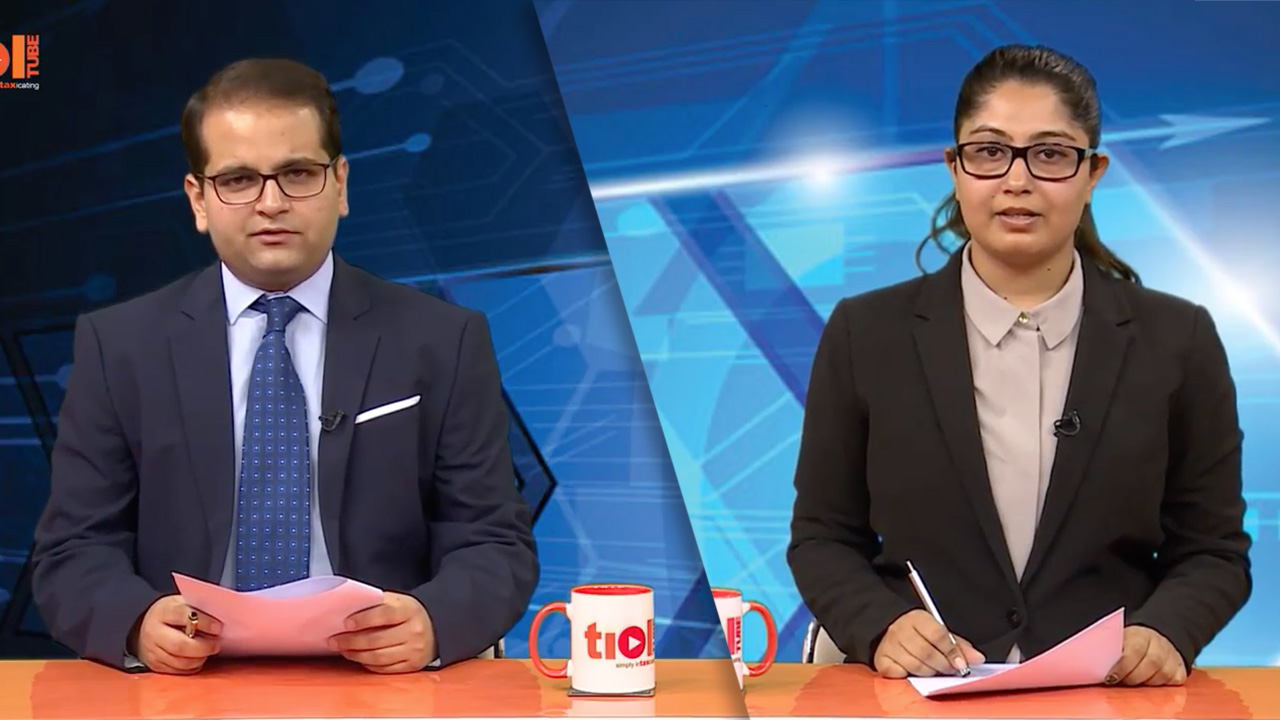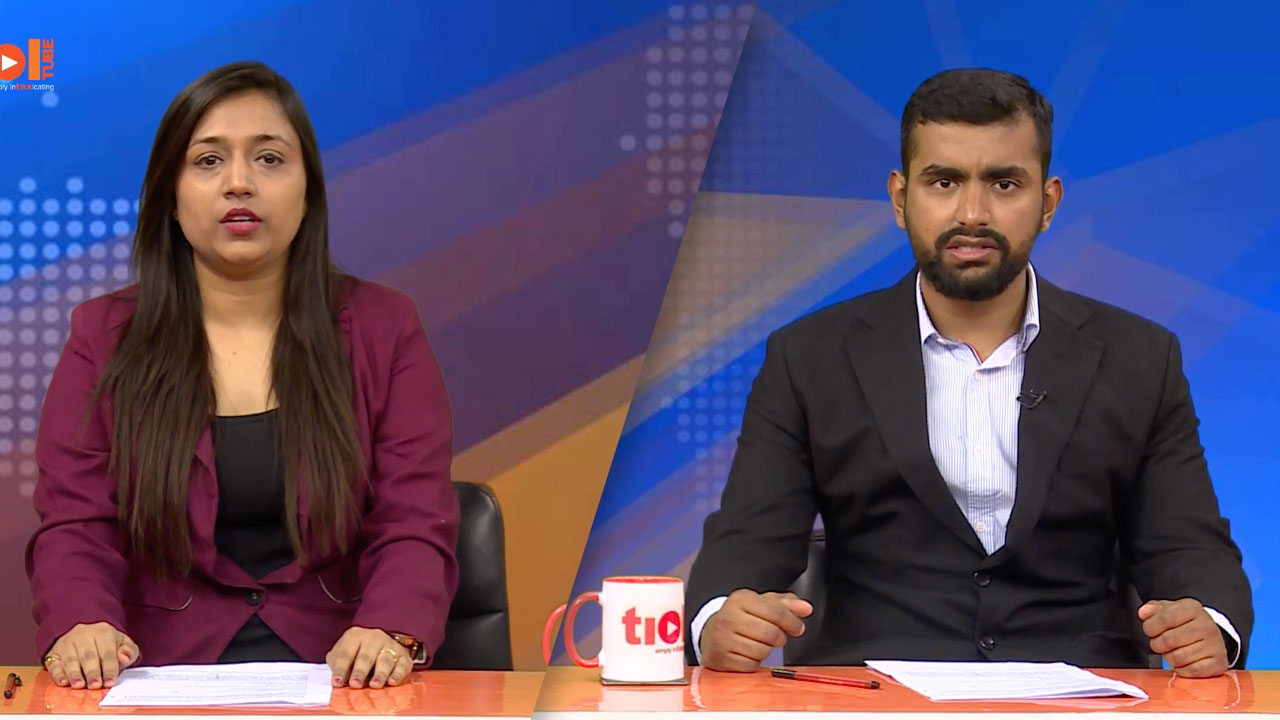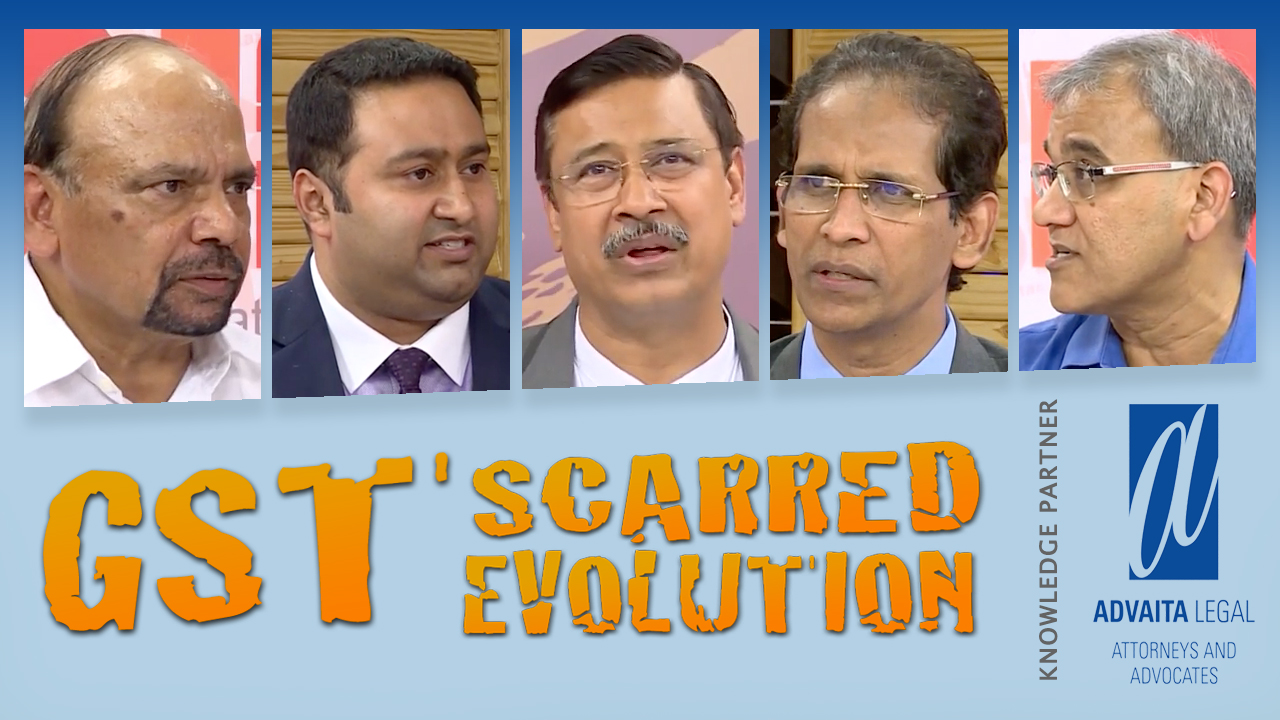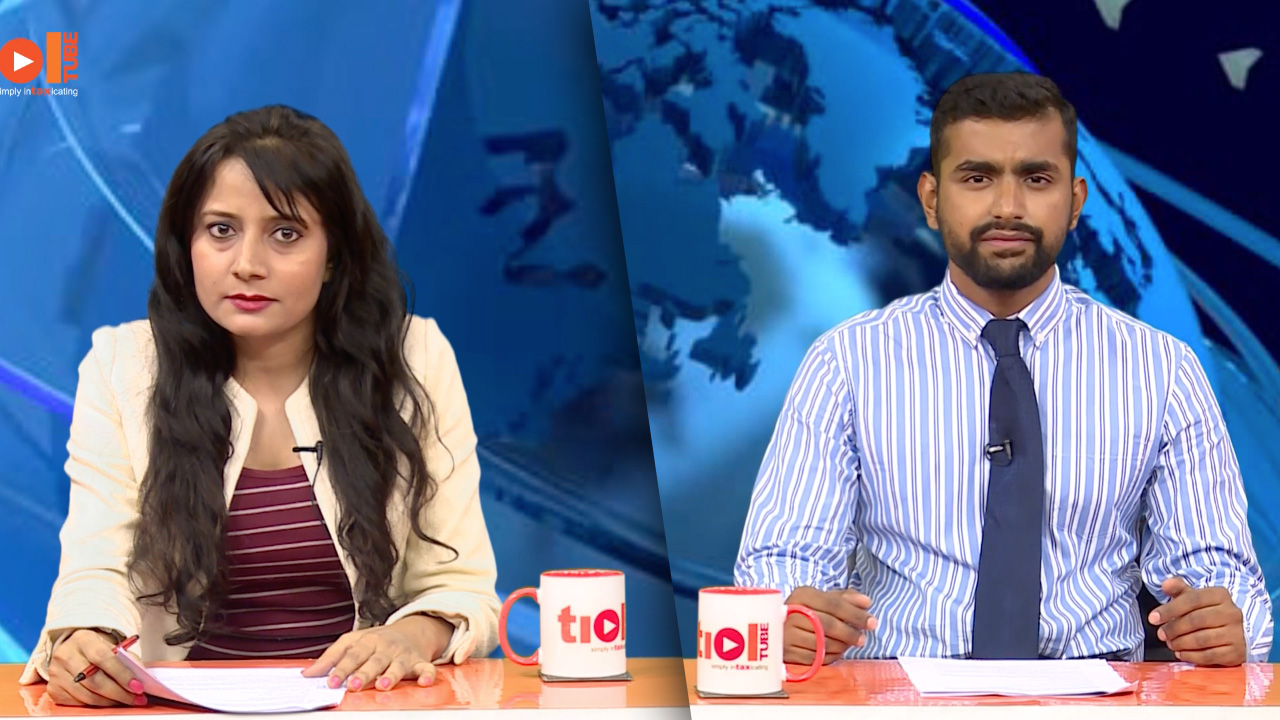SERVICE TAX
2018-TIOL-3388-CESTAT-MAD
CST Vs Vasanth And Company
ST - The assessee is engaged in trading of consumer durables such as TV, Refrigerators & Washing Machines - Pursuant to investigation by DGCEI, it appeared to the Department that the assessee had tie ups with several financial institutions for purchasing consumer durables from show rooms - It was also noted that the assessee received incentives if some customer availed loan facility from such institutions - Thus the Department opined that the assessee was acting as agent of financial institutions to promote the business of the of these financial institutions - Hence duty demands with interest were raised under Business Auxiliary Service - Penalties u/s 77 & 78 were imposed as well - On appeal, the Commr.(A) set aside the demands.
Held: The lower authorities did not consider the Tribunal's decision in Pagariya Auto Center Vs CCE Aurangabad - The Department relied solely upon statements an employee of the assessee - The agreements between the assessee & the other financial institutions were not considered - Although some sample copies of communications between the assessee & the FIs were submitted as well as some worksheets mentioning details of payments, the Department omitted to analyze them - The assessee also contended that the demand was time-barred & submitted some evidence to substantiate such claims, but these too were not examined - Hence the case must be examined in entirety to determine whether or not the activity would classify as Business Auxiliary Service - Hence matter warrants remand for such objective - Penalties imposed u/s 77 & 78 be set aside: CESTAT (Para 1,5,7,8)
-Matter remanded: CHENNAI CESTAT
2018-TIOL-3387-CESTAT-MAD
Veejay Marketing Vs CCE & ST
ST - The assessee manufactures spare parts of textile machinery - It received damaged Nipper assembly from an entity for repair & conditioning work - They were then cleared to the entity which sent it - In case defects were noticed in machines purchased from such entity, the machines would be forwarded to the assessee who would repair them and send them back - Duty demands were raised with penalty under Management, Maintenance or Repair service.
Held: The adjudicating authority rejected the assessee's contention that service tax had already been paid by the main contractor - Tax liability of sub-contractor cannot be denied - CCR 2004 clearly state that tax liability arises on value addition - Non-liability of sub-contractor when main contractor paid service tax can at best be a defence against extended period & penalty, but cannot be defence for non-payment of service tax - It is clarified that the assessee had been requested by the main contractor to not pay service tax on labor charges - Besides, the main contractor apparently paid a much higher value of tax - Hence the demand for extended limitation cannot be sustained - Nonetheless, the assessee must pay service tax for repair & maintenance charges even if the labor charges form part of service tax paid by the main contractor: CESTAT (Para 2,5)
- Assessee's appeal partly allowed: CHENNAI CESTAT
2018-TIOL-3386-CESTAT-MAD
Sesa Sterlite Ltd Vs CCE
ST - The assessee company manufactures Copper Anode, Copper Cathodes, Anode Slime, Sulphuric Acid & Phosphoric Acid - It provided services of Consulting Engineering Service, GTA Service, Man-power Recruitment & Supply Service, Technical Testing & Analysis Service and Management Consultancy Service - During the period of dispute, the Department noted that the assessee was alloted equity shares leading to increase in its paid up share capital - It was also noted that the assessee incurred share issue expenses which were reflected under the head 'Expenditure' in forex - It was further seen that the assessee entered into Underwriting Agreement with other organizations - The Department opined that the assessee was liable to pay service tax under reverse charge basis on the services of under-writers - Duty demand was raised with interest & penalties.
Held: The service tax liability under reverse charge basis is treated differently for different services only in Rule 3(iii) of the Point of Taxation Rules, 2011 - To tax Underwriting services in hands of person located in India, the services must be performed fully or partly in India - However this is not so in the present case - The Underwriting Agreement clarifies that the ADS offering is applicable for select jurisdictions abroad and not in India - As the services have not fully or partly been performed in India, no service tax liability arises under reverse charge basis - Hence the demands merit being set aside: CESTAT (Para 1,7,9)
- Assessee's appeal allowed: CHENNAI CESTAT
CENTRAL EXCISE
2018-TIOL-3385-CESTAT-DEL
Malhotra Engg Company Pvt Ltd Vs CCE
CX - The assessee is engaged in the manufacture of LPG gas stoves - It was availing SSI exemption during the period of dispute - The Department noted that the assessee used two different brand names on its products - After verifying with the Controller General of Patent Design and Trade Marks the Department alleged that both the brand names did not belong to the assessee and in fact were registered in the name of some other persons - Thus the Department claimed that the assessee was ineligible for SSI exemption - Thus duty demand was raised seeking recovery of the same.
Held: Considering the relevant provisions of Notfn No 08/2003-CE, it is seen that the entity availing the benefit of exemption must ensure to take the necessary precautions to determine whether or not the brand name used has already been registered in someone else's name - Doing so is in fact the duty of the claimant and in case the brand name is found to belong to someone else, the claimant is oblige to reverse appropriate amount of duty on manufacture & clearance of such goods - Thus the onus on ensuring compliance with the conditions in the notification lies with the claimant - In the present case, it is clear that the assessee was using the brand names registered in the names of some other persons - Hence the assessee is ineligible for SSI exemption - Also as the assessee failed to ensure proper compliance with the provisions of the notification, the extended limitation invoked u/s 11A to raise duty demand is also sustainable: CESTAT (Para 1,2,6,7)
- Assessees' appeals dismissed: DELHI CESTAT
2018-TIOL-3384-CESTAT-ALL
Marko Foods Vs CCE
CX - The assessee company is engaged in manufacturing chocolate toffees - The ingredients used include liquid glucose, sugar, milk solids, edible vegetable oil, lecithin, salt and flavor, emulsifier (322) - The assessee classified the same as 'Boiled Sweets' - However the Revenue classified the same as 'White Chocolate' - The Revenue also denied benefit of Notfn No 03/2006-CE & Notfn No 12/2012-CE - Duty demand was raised with interest & penalties were imposed on the assessee.
Held: As per the test report, each white chocolate preparation does not necessary positive test of Theobromina (does not confirmed presence of cocoa) having following characters Fat content 8% - Based on such report, it was held that the goods qualify as 'white chocolate' - As per Chapter 17 of the HSN notes, 'white chocolate' which means white chocolate composed of Sugar, Cocoa butter, Milk powder and Flavouring agents, but not containing more than mere traces of cocoa (cocoa butter is not regarded as cocoa) - Thus, it is clear that white chocolate should contain 'cocoa butter' - As per the test report, it is clear that the sample does not contain any cocoa butter and white chocolate requires fat content of 25% as per the Food Safety & Standards (Food Products Standard & Food Additives) Regulations, 2011 whereas the fat content in the goods in question is 8% only - Hence from the test report, it can be said tha tthe goods are not 'white chocolate' & so they qualify for exemption under the two notifications - As the goods manufactured by the assessee is sugar confectionery being neither chocolate nor bubble gum, the assessee must pay concessional rate of duty as required in the notifications: CESTAT (Para 3,5)
- Appeals partly allowed: ALLAHABAD CESTAT
2018-TIOL-3383-CESTAT-CHD
CCE & ST Vs Indo Bhutan Construction Solutions Pvt Ltd
CX - The assessee is engaged in manufacture of Autoclaved Aerated Concrete Block - During scrutiny of ER 3 returns, it was noticed that the assessee had availed CENVAT credit on capital goods - Since the assessee was availing exemption under Notfn 08/2003-CE, they were asked by jurisdictional Central Excise Officer to reverse the CENVAT credit availed on capital goods - The items of iron and steel were used in the capital goods which had been put to captive uses in the factory for the manufacture for final product - Further, under Rule 2(k) of the credit rules, inputs in the case of goods used in the factory of manufacture of final products, these goods were used towards the manufacture of capital goods used in the factory for final product captively which are exempted by way of Notfn 67/95-CE, further, this issue is no more res integra and is covered in favour of assessee by various decisions - All the decisions relied upon by Commissioner (A) are in favour of assessee, therefore, no infirmity found in impugned order - Consequently, the appeal filed by the revenue is dismissed: CESTAT
- Appeal dismissed: CHANDIGARH CESTAT
CUSTOMS
2018-TIOL-3389-CESTAT-MAD CC Vs Pioneer India Electronics Pvt Ltd
Cus - The assessee claimed refund of SAD as per Notfn No 102/2007 - Three refund claims had been filed for 19 bills of entry - Such claims were rejected on grounds of being time-barred - The Tribunal later remanded the matter - On remand, the adjudicating authority sancted the refund in part for non-fulfilment of the conditions in Para (e)(iii) of Notfn No 102/2007-Cus - The assessee's claim for interest on delayed refund was also denied on grounds that the requisite documents showing eligibility for refund had not been prepared when filing refund claim - Also, that the possibility of unjust enrichment had been ruled out much later after furnishing certificate from CA - Hence the assessee was found ineligible for credit u/s 27A of Customs Act 1962 - On appeal, the Commr.(A) directed sanction of interest on delayed payment of refund - Hence the Department's appeal.
Held: The Department raised no Deficiency memo to the assessee stating that the CA certificate was out of order - It should have done so at the time of receipt of the refund application - Such exercise was only done when the matter reached the Tribunal & so the Department at such late stage cannot issue fresh Deficiency memo to deny refund - Hence the O-i-A in challenge warrants no interference: CESTAT (Para 1,5.1,5.2)
- Revenue's appeal dismissed: CHENNAI CESTAT |








